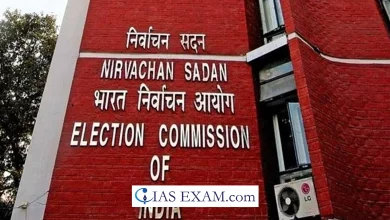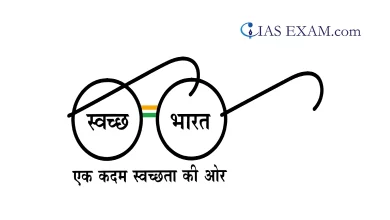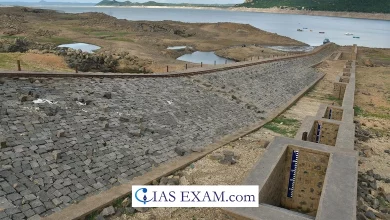UPSC Editorial Analysis
Intergovernmental Panel on Climate Change: ‘Synthesis’ Report
[GS Paper 3 - Environment and Ecology]
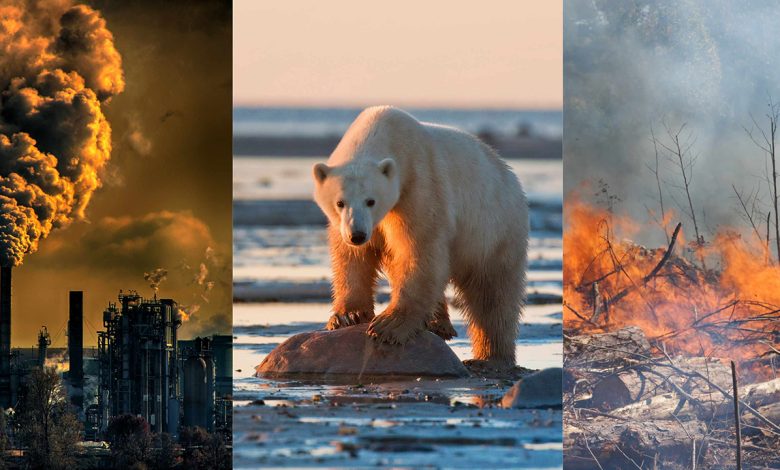
Context – The IPCC made public its final ‘ Synthesis Report’ as part of the Sixth Assessment Cycle AR 6 in panels’ 58th session after a weeklong deliberations at Interlaken, Switzerland from 13-19th March,2023.
The report shall be highlighted in the next Conference of Parties to be held in Dubai in November 2023.
Key findings of the ‘Synthesis’ report
- It emphasizes on the adverse impacts from human caused change that shall intensify on water scarcity and food production, health and wellbeing, cities settlements and infrastructure, ecosystem structure, species shifts and changes in timing.
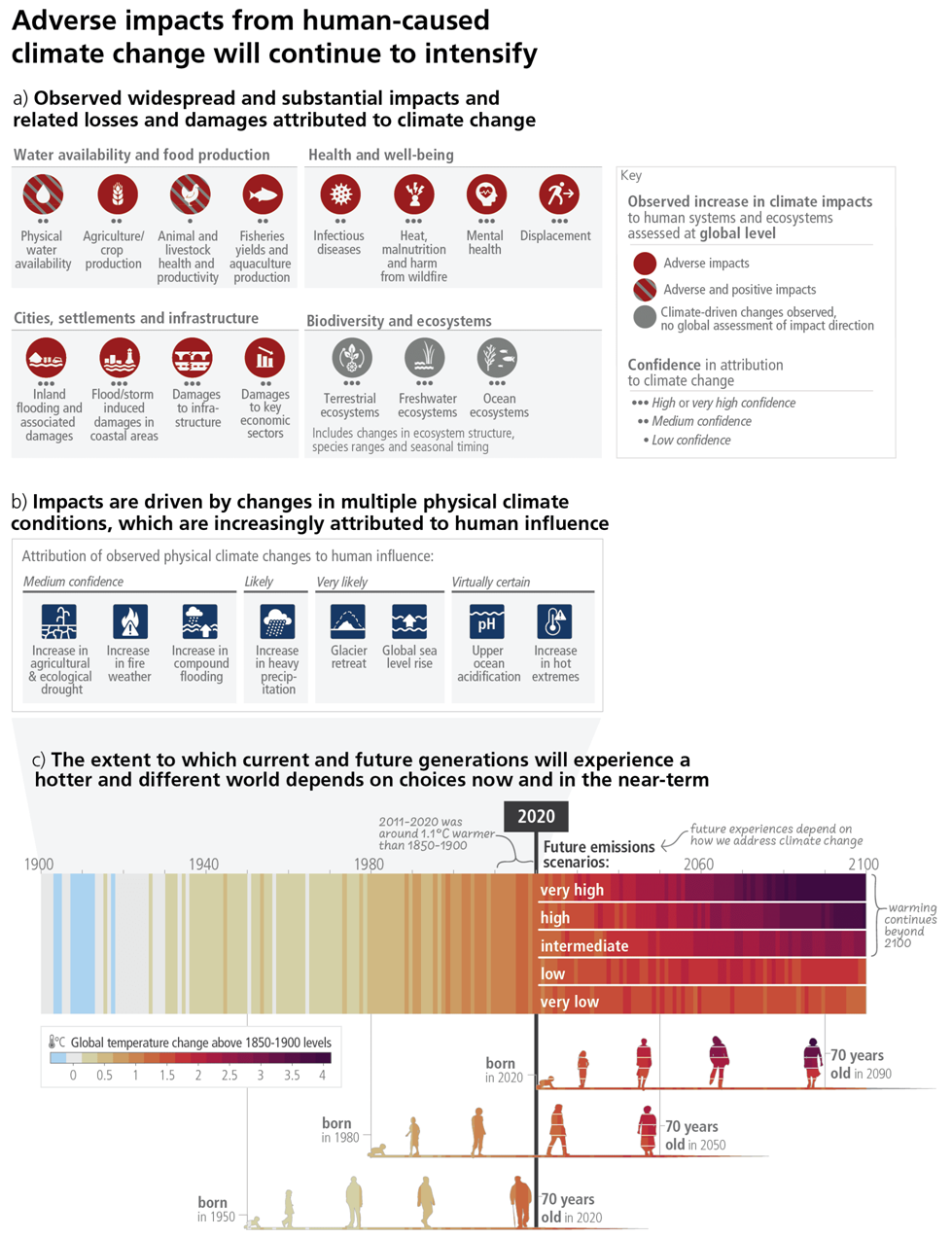
- Biggest impact of climate change is on parts of Africa, Asia, central/south America, LDCs, and Small islands, arctic that have the least contribution to climate change.
- Almost half of the world’s population lives in these vulnerable regions who are up to 15x more likely to die in floods, droughts, storms.
- It stresses on the need for finance flow from developed countries to developing countries that are poised to lose the most from climate change and compensate for their loss and help them build resilience.
- Need for 3-6 times the current climate investment
- It suggests for policy makers that the best chance to keep the planet’s temperature below 1.5 degree Celsius is by:“Reducing greenhouse gas emissions to 48 % of 2019 levels by 2030 and 99% by 2050”.
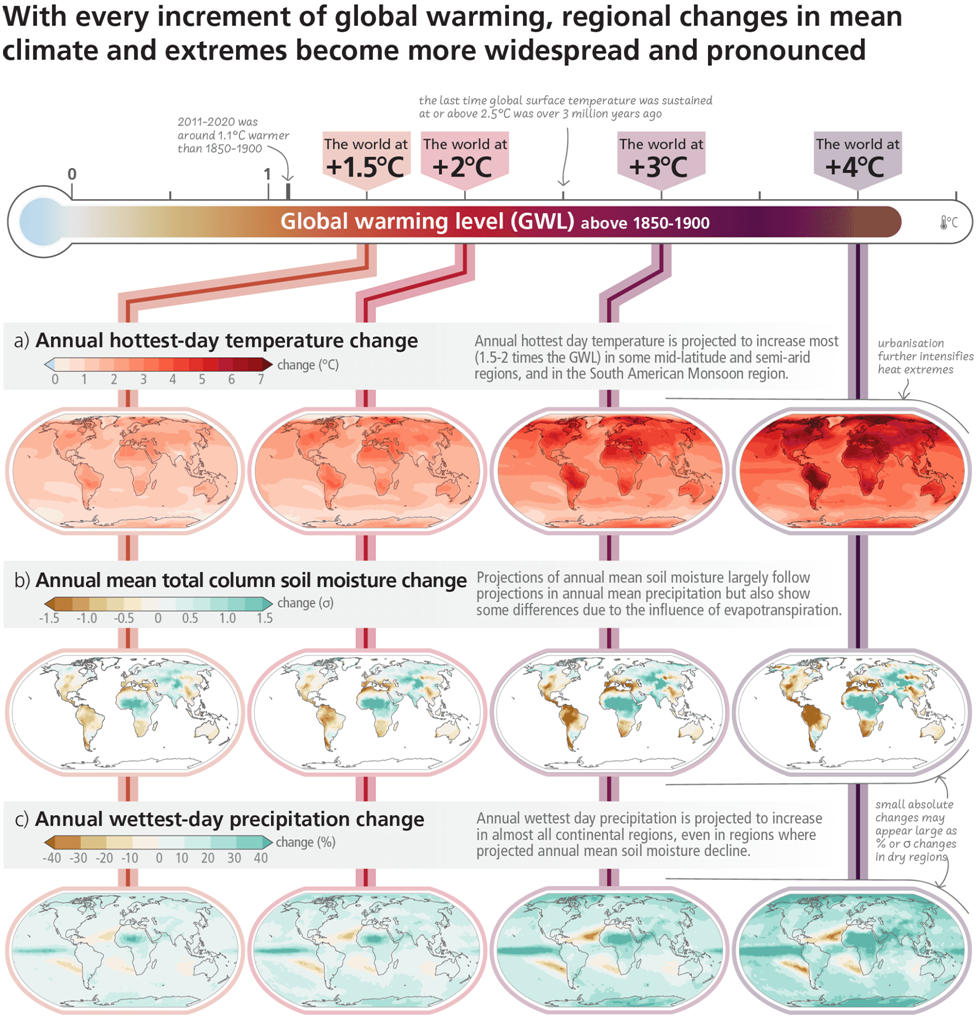
Other Findings and Solutions
- It talks about the falling cost of solar and wind power and expansion of electric vehicle fleets.
- Solution lies in adopting climate resilient development like:
- Access to clean energy and technology improving health of children and women, low carbon electrification, no use of vehicles and preferring walking, cycling to enhance air quality etc.
- Increasing climate investments, including technological know-how and suitable policies are crucial to achieve climate goals.
- Urban areas are the key areas to scale up opportunities for sustainable development.
- Equitable and effective conservation of 30-50% of the earth’s ocean, freshwater and land can help in building a healthy planet.
- Climate resilience can be achieved by including indigenous, local and scientific knowledge providing socially acceptable and locally appropriate solutions.
- Prioritizing the climate risk reduction in low income and marginalized communities shall provide greatest gains.
- India has welcomed the report and has said that the climate crisis is due to unequal contributions and climate justice is the way to mitigation and adaptation.
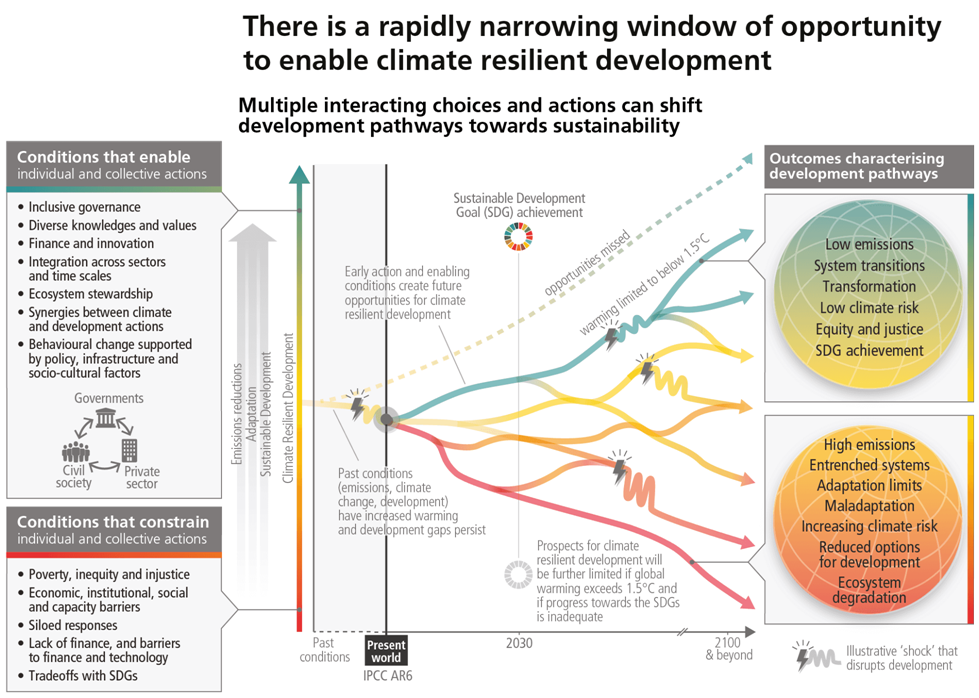
What is IPCC?
- The Intergovernmental Panel on Climate Change (IPCC) is a United Nations body created by the World Meteorological Organization (WMO) and the United Nations Environment Programme (UNEP) in 1998.
- It assesses the science related to climate change and provides political leaders with periodic assessment reports on climate change.
- It has 195 members. India is a member.
IPCC Assessment Reports
- The first repost came in 1990. The ipcc publishes such comprehensive reports every six to seven years.
- Hundreds of volunteers, experts assess scientific papers from worldwide to provide scientific information for policy makers to develop policies to address climate change.
- It has three working groups which addresses issues l:
- Working Group 1- Physical Science of Climate Change
- Working Group -2 – Impact, Adaptation and Vulnerability associated with Climate Change
- Working Group -3- Deals with Mitigation of Climate Change
- The IPCC AR Fifth Assessment Report completed in 2014, provided essential input for the 2015 Paris Agreement on Climate Change.





.png)
